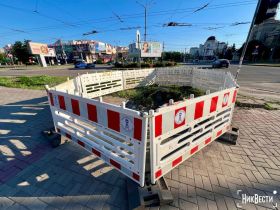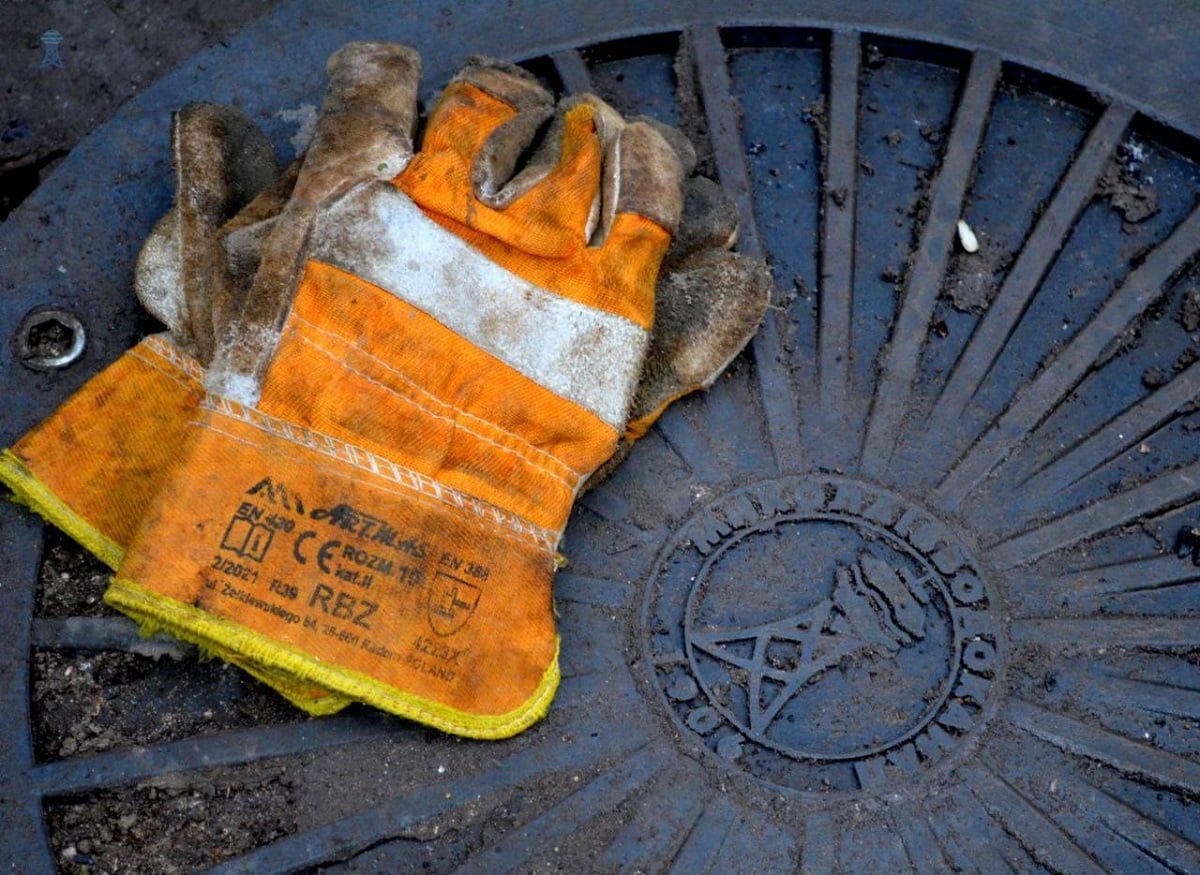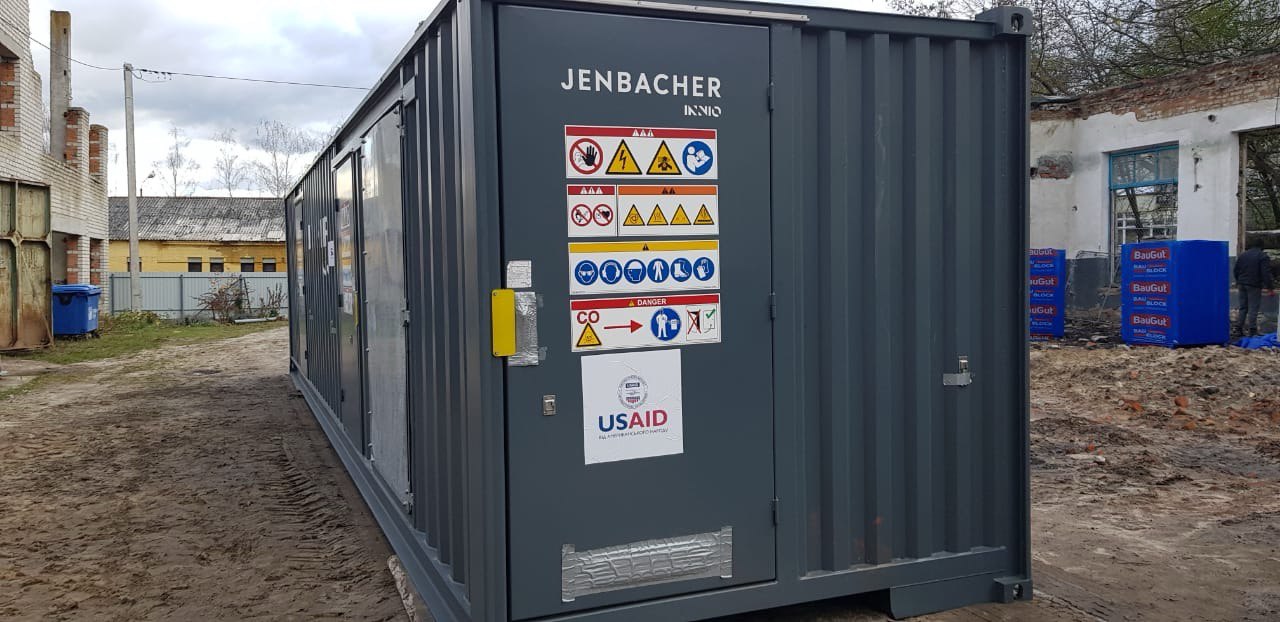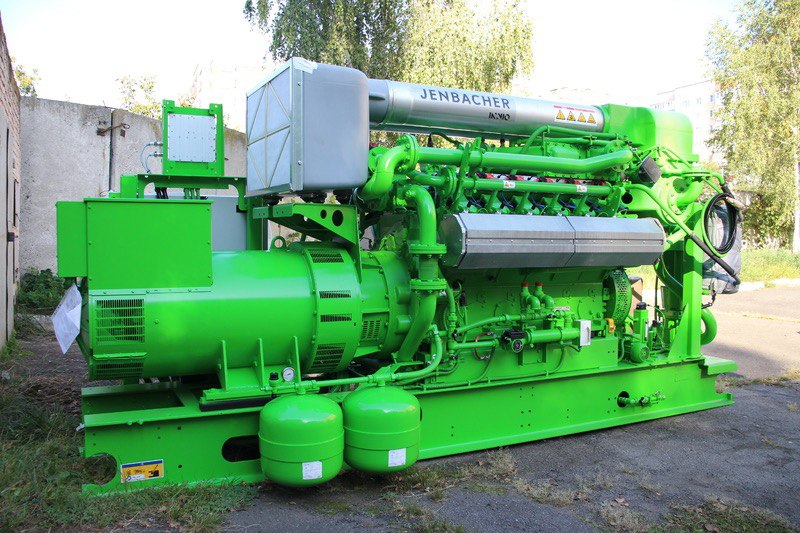Water supply in blackout. Is Mykolaiv ready?
-

- Alisa Melik-Adamian
-
•
-
18:43, 28 June, 2024
Since the beginning of May of this year, mass power outages have returned to Ukraine in the regions, caused by large-scale damage to critical infrastructure facilities. Hundreds of thousands of consumers were left without electricity, and water disappeared with it. For Mykolaiv, which has been without drinking water for more than two years, this has become an even bigger problem, which has caused a lot of accidents on the networks.
How the utility company «Mykolaivvodokanal» works today during power outages and whether there is a threat of water outages in the event of a long-term lack of electricity, we explain in the NikVesti explainer.
Due to the blackout, the number of pipe bursts increased
If you walk through the streets of the city, you can count up to 10 areas fenced off by the waterworks at once, where another gust occurred and an accident occurred.
Power outages are a very big problem for energy-dependent enterprises, says Borys Dudenko, the head of Mykolaivvodokanal. The main issue that arises here is the different pressure in the pipes, when the KP is connected to the generator at the moment of blackout. This has created a lot of accidents to date.
«This problem resonates and resonates differently for everyone. What are the consequences for the waterworks? For the water utility, it is primarily the difference that occurs in the pressure of the pipes. I will now try to explain in a simple way. Imagine that the electricity is cut off, we switch to a generator, to another line. Does not matter. But in any case, it's time. And at this moment the flow of water stops, then starts again. Well, we have a lot of accidents. Then again, our pipes weren't in very good shape anyway, and the salt water made them even worse. And now we have a very, very large number of accidents,» Borys Dudenko comments on the situation.
Roughly speaking, now Mykolaiv has returned to the middle of 2022, when there were a lot of surges in the city, because the entire operation of the water supply system and equipment depends on electricity.
Borys Dudenko says that the number of accidents has increased fivefold since the beginning of problems with electricity.
Pump stations work on generators
The operation of pumping stations today, during the application of shutdown schedules, is completely dependent on alternative power — that is, the generator. However, there is a slight problem here as well.
«Now the question arises — maintenance: replacement of filters, replacement of drives, oils. There is also a personnel problem. If someone says that he has enough people, he is probably lying. There is a shortage of people in all sectors. There is the issue of personnel who must have permits. It's not just pushing a button. There must be skills, knowledge, and abilities to do all this. But this is not a problem. We solve it completely calmly,» says Borys Dudenko.
Will the water utility have enough generators in case of a long blackout?
Now the water supply company needs strengthening, which will make it possible to be minimally prepared for possibly bigger problems with electricity supply. The enterprise does not have a separate autonomous power plant, so it needs additional generators.
«We all need reinforcement for any complications of the situation. That is, no matter how much we prepare for something, we will not be 100% ready for it. But in any case, an additional resource is needed. And these are additional generators. We need, accordingly, a harness for them. This is the provision of cables, ADR, fuel tanks. Fuel delivery. Any resource. We are solving this now with the city and donors. Roughly speaking, we are working on the worst-case scenario,» he added.
In particular, generators should be equipped with pumping stations in multi-story buildings, where water can disappear on the upper floors. According to preliminary calculations, says Borys Dudenko, about 20 tons of fuel per day will be needed to ensure uninterrupted operation of water supply pumping stations in the event of a blackout.
«This is not the case in all apartment buildings. There are places where water does not reach. That is, these are places that are high, they are equipped with pumps. But during a blackout, these swaps don't work. We are also currently working on the issue of equipping them with generators so that they are energized at the time of a power outage,» the official added.
How are other cities preparing for a possible blackout?
For example, in Chernihiv, on the territory of one of the facilities of the utility company «Chernihivvodokanal», they are preparing to start a cogeneration plant. It is reported that this is the first such installation at a water supply channel in Ukraine. Will provide the enterprise with electricity if it is suddenly turned off. Even in a complete blackout, the sewage system will work.
Equipment from one of the most famous manufacturers was provided in 2022 by an international charitable organization on migration issues. The approximate cost of the installation is about 15 million hryvnias, reports the Vist website.
According to the director of «Chernihivvodokanal» Serhii Maliavko, such an installation was offered to other cities as well, but they refused for various reasons.
«They said that there is a complex set of related issues. And we immediately agreed. Because even then I understood that they would turn off the lights. A cogeneration plant is essentially an internal combustion engine powered by gas or biogas. You can use gas from the general network. There is a generator that produces electricity. Due to the fact that there is a cooling circuit, in addition to electrical energy, there will be thermal energy. We will use it for heating premises: administration building, waste water laboratory,» said Serhii Maliavko.
The power of the cogeneration plant will fully supply the city's sewage treatment plants with electricity.
As Suspilne reports, a total of five cogeneration plants are being installed in Chernihiv, which were provided to the city by international partners as humanitarian aid. Paying for the connection of these installations will be financed from the city budget.
Thus, not only the problem of a possible lack of water, but also heating is solved in Chernihiv. Since such cogeneration plants work according to the method of combined production of electrical and thermal energy or transforms the waste energy potential of technological processes into electrical and thermal energy.
In Mykolaiv, they are also engaged in cogeneration
According to the Ministry of Development of Communities, Territories and Infrastructure of Ukraine, currently cogeneration plants have already received heat supply enterprises in Chernihiv, Chernivtsi, Donetsk, Khmelnytskyi, Cherkasy, Poltava, Mykolaiv, Kirovohrad, Rivne, Vinnytsia, Zaporizhzhia, Zhytomyr, Kharkiv, Volyn, Kherson, Lviv, Kyiv, Dnipropetrovsk, Ternopil, Odesa, and Sumy regions.
It is expected that the commissioning of all installations, with a capacity of 50 kW to 1,500 kW, will ensure a stable heat supply for more than 1 million residents of apartment buildings and about 1,000 social facilities, regardless of planned or emergency power outages.
According to NikVesti, the Mykolaiv authorities are also engaged in the construction of cogeneration plants that will be able to provide the critical infrastructure of the city with electricity and heat. We are talking about ensuring the operation of water supply, sewage, and heating systems. These installations will be serviced by the utility company «Mykolaivoblteploenergo», director Mykola Lohvinov told us in his comments.
Mykola Lohvinov, referring to security issues, refused to disclose the details of this project, as well as the number of such installations, but assured that he has been engaged in this for the second year.
«The action plan is to close all critical infrastructure: water, heat, sewage, and partially hospitals. It is very expensive. 1 megawatt equipment with installation and maintenance costs approximately 1 million euros. The cogeneration plant works on gas, it produces heat and electricity in equal parts: A 1 megawatt machine produces 1 megawatt of electricity and 1 megawatt of heat,» Mykola Lohvinov said.
International donors help Mykolaiv in this matter.
Alisa Melik-Adamian, NikVesti
Work on this material became possible thanks to the Fight for Facts project, which is implemented with the financial support of the Federal Ministry of Economic Cooperation and Development of Germany.





